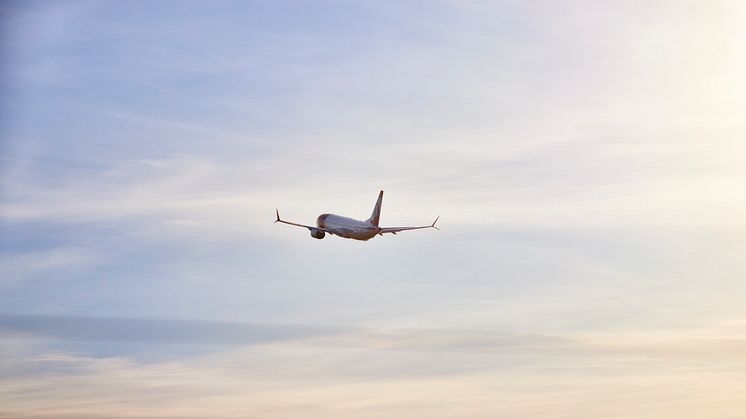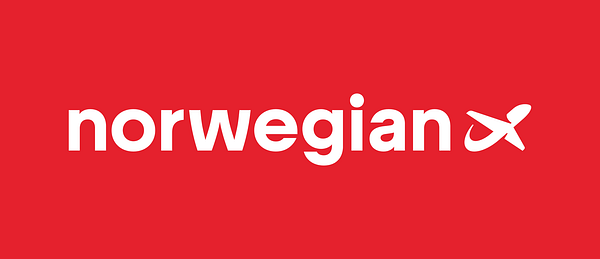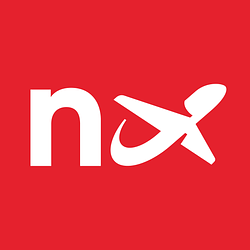
Press release -
Norwegian Group had 1.9 million passengers in March
In March, Norwegian had 1,587,550 passengers, while Widerøe had 328,385 passengers, totalling 1,915,935 for the group. The capacity increased by 13 percent for Norwegian, while Widerøe had a 9 percent increase in capacity compared to March 2024. Norwegian strong operational performance and high punctuality in March.
“I am pleased that we are continuing the strong momentum with our operational performance in Norwegian, something that is critical as we start our summer programme. March is the last month of the low season, and we look forward to a busy Easter travel period,” said Geir Karlsen, CEO of Norwegian.
Norwegian’s capacity (ASK) in March was 2,770 million seat kilometres, up 13 percent from last year. Actual passenger traffic (RPK) for Norwegian was 2,245 million seat kilometres, up 8 percent. The load factor was 81.1 percent, down 3,9 percentage points from the same period last year. The reduction is mainly caused by the 2024 Easter holidays falling in March, as well as a significant capacity increase. Norwegian operated an average of 77 aircraft during March.
Widerøe’s capacity (ASK) in March was 168 million seat kilometres, up 9 percent from last year. The actual passenger traffic (RPK) for Widerøe was 119 million seat kilometres, while the load factor was 70.7 percent, up 0.3 percentage points.
Norwegian and Widerøe’s punctuality, defined as share of flights departing within 15 minutes of scheduled time, was 88.1 percent and 80.7 percent respectively. Regularity, measured by the share of scheduled flights taking place, was 99.4 percent for Norwegian and 95.5 percent for Widerøe.
Start of the summer programme
The beginning of April marks the start of Norwegian’s summer programme. The summer 2025programme includes 350 routes, with 19 new destinations compared to last year.
“Our summer programme swings into action this week, featuring 129 exciting destinations across Europe and beyond. Initial bookings for summer travel are strong, and we are looking forward to flying all our customers to their destinations. We advise any customers with set holiday dates to book early,” said Geir Karlsen.
During March, Norwegian concluded the deal on the purchase of ten previously leased Boeing 737-800 aircraft which will support the airline’s long-term growth and flexibility.
In March, Norwegian’s most popular routes* were:
1.London
2.Malaga
3.Alicante
4.Las Palmas
5.Barcelona
*Intra-Nordic and domestic routes are not included
A separate press release on Widerøe’s traffic figures can be found at the Widerøe media centre.
Topics
Categories
About Norwegian
The Norwegian group is a leading Nordic aviation company, headquartered at Fornebu outside Oslo, Norway. The company has over 8,200 employees and owns two of the prominent airlines in the Nordics: Norwegian Air Shuttle and Widerøe’s Flyveselskap. Widerøe was acquired by Norwegian in 2024, aiming to facilitate seamless air travel across the two airline’s networks.
Norwegian Air Shuttle, the largest Norwegian airline with around 4,700 employees, operates an extensive route network connecting Nordic countries to key European destinations. In 2024, Norwegian carried 22,6 million passengers and maintained a fleet of 86 Boeing 737-800 and 737 MAX 8 aircraft.
Widerøe’s Flyveselskap, Norway’s oldest airline, is Scandinavia’s largest regional carrier. The airline has more than 3,500 employees. Mainly operating the short-runway airports in rural Norway, Widerøe operates several state contract routes (PSO routes) in addition to its own commercial network. In 2024, the airline had 3.8 million passengers and a fleet of 49 aircraft, including 46 Bombardier Dash 8’s and three Embraer E190-E2's. Widerøe Ground Handling provides ground handling services at 41 Norwegian airports.
The Norwegian group has sustainability as a key priority and has committed to significantly reducing carbon emissions from its operations. Among numerous initiatives, the most noteworthy is the investment in production and use of fossil-free aviation fuel (SAF). Norwegian strives to become the sustainable choice for its passengers, actively contributing to the transformation of the aviation industry.


